- Home
- Robert Jordan
Conan the Defender Page 7
Conan the Defender Read online
Page 7
“I would ask you,” he added, “why this blade has such worth. Is it perhaps the sword of an ancient king, or hero?”
Demetrio paused in the act of carefully wrapping the cloak about the sword. Carefully, Conan thought, and as gingerly as if it were a dangerous animal.
“How are you called?” the slender man asked.
“I am called Conan.”
“You are right, Conan. This is the sword of an ancient king. In fact, you might say this is the sword of Bragoras.” And he laughed as if he had said the funniest thing he had ever heard. Still laughing, he gathered up the sword and cloak and hurried into the street.
VII
Albanus paused at the door, the crude, fur-trimmed bundle beneath his arm out of place in the tapestry-hung room with its carpet-strewn marble floor. Sularia sat before a tall mirror, a golden silk robe about her creamy shoulders, a kneeling slave woman brushing the honey silk of her hair. Seeing his reflection Sularia let the robe drop, giving him a view of her generous breasts in the mirror.
The hawk-faced lord snapped his fingers. The slave looked around; at his gesture she bowed and fled on bare feet.
“You have brought me a gift?” Sularia said. “It is wrapped most strangely, an you have.” She examined her face in the mirror, and lightly stroked rouge onto her cheeks with a brush of fur.
“This is not for you,” he laughed. “’Tis the sword of Melius.”
With a key that hung on a golden chain about his neck, he unlocked a large lacquered chest standing against the wall, turning the key first one way then the other in a precise pattern. Were that pattern not followed exactly, he had told Sularia, a cunningly contrived system of tubes and air-chambers would hurl poison darts into the face of the opener.
Albanus swung back the lid and, tossing aside the tattered cloak, carefully laid the sword in the place he had prepared for it. The tomes of ancient Acheron, bound in virgins’ skin, were there, well layered in silk, and those most vital thaumaturgical implements from the cache. His fingers rested briefly on a bundle of scrolls and rolled canvases. Not yet of any magical significance, they still deserved their place in the chest, those sketches and paintings of Garian. In a place of honor, resting on a silken cushion atop a golden stand, was a crystal sphere of deepest blue within which silver flecks danced and glittered.
Letting her robe drift to the floor, Sularia came to stand naked beside him. Her tongue touched her lips in small flickers as she stared down at the sword. “It was that blade which slew so many? Is it not dangerous? Ought you not to destroy it?”
“It is too useful,” he said. “Had I but known what I know now, never would I have put it in the hands of that fool Melius. ‘Twas those runes on the blade led me at last to its secret, buried in the grimoires.”
“But why did Melius slay as he did?”
“In the forging of this weapon, the essences of six masters of the sword were trapped within the steel.” He let his fingers brush lightly along the blade, sensing the power that had been required for its making. Such power would be his, power beyond the ken of mortal minds, power far beyond that of earthly kings. “And in that entrapment did madness come.” He reached down as if to lift the sword, but stopped with his hand clawed above the hilt. “Let the same hand grasp this hilt but three times to use this blade, and the mind that controls that hand will be ripped away, merging with the madness of those ancient masters of the sword. Escape. Slay, and escape. Slay. Slay!”
Ending on a shout, he looked at Sularia. Her mouth hung open, and she stared at his hand above the sword with open fear in her blue eyes.
“How often have you used the sword?” she whispered.
He laughed and took his hand away. Instead of the sword he picked up the crystal sphere, holding it delicately in his fingers, almost reverently, though he knew no power under heaven could so much as chip its seemingly fragile surface.
“You fear the sword?” he asked softly. His adamantine gaze seemed to pierce to the heart of the cobalt sphere. “Here is that which is to be feared, for by this is summoned and controlled a being—a demon? a god?—I know not, yet a being of such power that even the tomes of Acheron speak of it in whispers full of awe.”
And he would be its master, master of more power than all the kings of all the nations of the world. His breath quickened at the thought. Never yet had he dared that summoning, for that act held dangers for he who summoned, dangers that master might find himself slave, a mortal plaything for an immortal monster with eternity to amuse itself. Yet, was he not descended of Bragoras, ancient hero-king who had slain the dragon Xutharcan and bound the demon Dargon in the depths of the Western Sea?
Almost unbidden, the words of summoning began to roll from his lips. “Af-far mea-roth, Omini deas kaan, Eeth-far be-laan Opheah cristi … .”
As the words came, the sky darkened above the city as though the sun had dimmed to twilight. Lightning cracked and forked across a cloudless sky, and, rumbling, the earth began to shake.
Albanus stumbled, looked around him in sudden panic at walls that quivered like cloth in the breeze. It was too soon for this. It was madness to have tried. And yet, he had not finished the incantation. There was a chance. Hastily he returned the sphere, glowing now, to its cushion within the lacquered chest. With great care he blanked his mind. There must be not even the merest thought of summoning. No thought at all. No thought.
Slowly the light in the crystal sphere faded, and the earth ceased to move. The lightnings faded and were gone. Light broke forth over the city as if at a new sunrise.
For a long time Albanus did not look at Sularia. Did she say one word, he thought grimly, but one word of the spectacle of fool he had made himself, he would gut her and strangle her with her own entrails. But one word. He turned to face her with a face dark as that beneath an executioner’s hood.
Sularia stared at him with eyes filled with pure lust. “Such power,” she whispered. “You are a man of such power, almost I fear me it might blind me to look on you.” Her breath came in pants. “Is it thus you will destroy Garian?”
His spirit soared, and his pride. “Garian is not worthy of such,” he sneered. “I will create a man, give him life with my two hands. So will I bring the usurper to his doom.”
“You are so powerful as that?” she gasped.
He waved it away. “A mere trifle. Already have I done so, and this time the errors of the last will not be repeated.” Abruptly he tangled his hand in her hair, forced her to the floor, forced her though she would have gone willingly and more than willingly. “Nothing stands in my way,” he said as he lowered himself atop her. She cried out, and he heard in it the cries of the people acclaiming their king, their god.
Sephana raised herself from the cushions of her bed, her lushly rounded body sweat-oiled from love making. Her full breasts swayed with the motion.
The man in her bed, a lean young captain of the Golden Leopards, lifted himself unsteadily on one elbow. His dark eyes were worshipful as he gazed at her. “Are you a witch, Sephana? Each time I think that I will die from the pleasure. Each time I think that I’ve had all the ecstacy there is in the world. And each time you give more than I could dream of.”
Sephana smiled contentedly. “And yet, Baetis, I think you tire of me.”
“Never!” he said fervently. “You must believe me. You are Derketo come to earth.”
“But you refuse me such a small favor.”
“Sephana,” he moaned, “you know not what you ask. My duty … .”
“A small favor,” she said again, walking slowly back to the bed.
His eyes followed her hungrily. She was no slender girl, but a woman of curves, a callimastean and callipygean marvel to put hunger in any man’s eyes. He reached for her, but she stepped back.
“A door left unlatched, Baetis,” she said softly. “A passage left unguarded. Would you deny your king a surprise, the same delights you now enjoy?”
The young captain breathed heavily, and hi
s eyes closed. “I, at least, must be there,” he said at last.
“Of course,” she said swiftly, and moved to kneel astride him. “Of course, Baetis, my love.” Her smile was vulpine, the light in her violet eyes feral. Let Albanus make his long, drawn-out plans. She would strike while he still planned. It was a pity that Baetis had to die along with Garian. But that was in the future. Sighing contentedly, she gave herself over to pleasure.
VIII
The straw butts were each the size of a man’s torso. Conan set the last of them in place, and swung into the saddle to gallop the hundred and fifty paces back to the men he and Hordo had gathered in the five days past. He wished the one-eyed man were with him, but Hordo was yet keeping his contacts with the smugglers, and he was seeing to the shifting of goods from a storehouse before the Kings Customs made a supposed surprise inspection. They could never tell, Hordo maintained, when those contacts might prove useful.
The Cimmerian reigned in his big Aqilonian black before the two score mounted men, holding up a short, heavy bow before the men. “This is a horse bow.”
The bows had been a lucky find, for mounted archery was an art unknown in the west, and Conan counted on this skill to add to his Free-Company’s appeal to patrons. The bows had been lying unstrung in the smugglers’ storehouse, thought too short and of too heavy a draw to be wanted. Each of the forty now wore other acquisitions from the storehouse: metal jazeraint hauberks over padded tunics, and spiked helms. A round shield hung at each saddle, and a good Turanian scimitar, bearing the proof-mark of the Royal Foundry at Aghrapur, swung at each hip.
Conan hoped their armor was unfamiliar enough to Nemedia to give them a foreign flavor. Men usually believed that foreigners knew strange tricks of fighting. With the horse bows, they might believe correctly. As he and Hordo had chosen only men already possessing a horse—they had gold enough only for signing bonuses, not for buying horses—so had they chosen men who knew something of archery. But none knew mounted archery. That was why Conan had brought them to this clearing outside of Belverus.
“You’re all accustomed to using a bow-ring on your thumb,” he went on, “but when you fight mounted, you must be able to shift from bow to sword to lance and back, quickly. A bow-ring encumbers the grip.”
“How do you draw the thing at all?” asked a grizzled man with a livid scar across his broad nose. He held the short bow out at arm’s length and attempted to draw it. The cord moved no more than a handspan, producing laughter from some of the others.
The grizzled man’s name was Machaon. Though he did not recognize Conan, the Cimmerian knew him for the sergeant who had commanded the City Guards in killing Lord Melius.
“Use a three-fingered grip on the cord,” Conan said once the laughter had died, “and draw thusly.”
The muscular Cimmerian notched an arrow and, placing the bowstring to his cheek, pushed the short, powerful bow out to draw it. As he did so, he pressed with his knees, bringing the war-trained black around. The straw butts seemed to swing before his eyes; he loosed. With a solid thud the shaft struck square in the center of the middle butt. A surprised murmur went up from the men.
“Thus is it done,” Conan said.
“’Tis more than passing strange,” a tall, hollow-cheeked man muttered, “this archery from horseback.” His black eyes were sunken, and he looked as though he had been ravaged by disease, though those among the company who knew him said he had no sickness but a doleful spirit. “If it is a thing of use, why do we not see it among the armies of Nemedia or Aquilonia or any other civilized land?”
Conan was saved answering by Machaon.
“Open your mind, Narus,” the grizzled man said, “and for once let not your mournful mood color what you see. Think you. We can appear, strike and be gone while foot-archers rush to plant their sharpened stakes against the charge they expect, while pikemen and ordinary infantry yet prepare to close ranks against the mounted attacks they know. Enemy cavalry will be but lowering their lances to countercharge when our arrows strike to their hearts. Put off your dolorous countenance, Narus, and smile at the surprise we will give our enemies.”
Narus deliberately showed his teeth in a grin that made him look more the plague victim than ever. A ripple of laughter and obscene comment greeted his attempt.
“Machaon has seen the right of it,” Conan announced. “I name him now as sergeant of this Free-Company.”
A surprised and thoughtful look appeared on Machaon’s scar-nosed face, and a murmur of approval rose from the rest. Even Narus seemed to think it a good choice, in his mournful way.
“Now,” Conan continued, “let each man take a turn at the butts. First with the horse unmoving.”
For three full turns of the glass the Cimmerian kept them at it, progressing to shooting with their mounts at a walk, thence to firing at the gallop. Every man knew horsemanship and the bow, if not together, and they made good advance. By that time’s end, did they not use their horse bows so well as Turanian light cavalry, yet was their skill enough to surprise and shock any of these western lands. Machaon, to no one’s surprise, and Narus, to everyone’s, were the best after Conan.
After that time the Cimmerian led them back into Belverus, to one of the stables that lined the city’s wall, where he had arranged for their horses to be tended. After each man had given his mount into the care of a stable slave he left to go his own way until the morrow, when Conan had commanded them to meet again at the stable, for such was the custom of Free-Companies when not in service. It was about that last that Machaon spoke as Conan was leaving.
“A moment, captain,” the grizzled man said, catching Conan at the heavy wooden doors of the stable. Machaon had been handsome as a youth, but aside from the scar that cut across his broad nose his face was a map of his campaigns. On his left cheek was a small tattoo of a six-pointed star from Koth; three thin gold rings from Argos dangled from the lobe of his right ear, and his hair was cut short in front and long in back after the style of the Ophirian border.
“It would be well, captain, if you were to put the company into service soon. Though it’s been but a few days since we swore the bond-oath yet have I heard some complain openly that we earn no gold, and speak of the ease of taking a second bond-oath using another name before another Magistrate.”
“Let them know that we’ll take service soon,” Conan replied, though he wondered himself why he had approached none of the merchants who might wish to hire a Free-Company. “I see that I made a good choice for sergeant.”
Machaon hesitated, then asked quietly, “Know you who I am?”
“I know who you are, but I care not who you were.” Conan met the man’s dark-eyed gaze until Machaon finally nodded.
“I’ll see to the men, captain.”
From the stable Conan made his way to the Sign of Thestis through streets that seemed to have twice as many beggars and three times as many toughs as a tenday past. No plump merchant or stern-faced noble now made his way in even the High Streets without a hard-eyed escort, and no slave-borne curtained litter, whether it contained a noble’s sleek daughter or the hot-eyed courtesan who served him, traveled shorn of its bevy of armed and armored guardians. The City Guard were nowhere to be seen.
The Thestis when Conan entered was filling, as it always did of a midday, with youthful artists in search of a free meal from the inn’s stewpot. Their arguments and musical instruments blended into a cacophony that the Cimmerian had learned to ignore.
He grabbed Kerin’s arm as she rushed past, a clay wine-jug in each hand. “Has Hordo returned?” he asked.
She set one of the jugs down hard enough to crack it, ignoring the wine spreading across the table top and the yelps of those seated there. “He sent a message by a boy,” she said coldly. “You are to meet him at the Sign of the Full Moon, on the Street of Regrets, a glass past the sun’s zenith.”
“Why there? Did he say why he does not come here?”
Kerin’s eyes narrowed to slits, and s
he spoke through clenched teeth. “There was some mention of a dancer, with breasts … . Enough! If you would learn more, learn it from that miserable one-eyed goat!”
The Cimmerian suppressed a smile until she had flounced away. He hoped this dancer was all that Hordo thought, for the one-eyed man was surely going to pay for his pleasures when he again came in reach of Kerin.
He was trying to decide if he had time for a bowl of stew—it was assuredly better than that served on the Street of Regrets—before leaving to meet Hordon, when Ariane approached and put a small hand on his arm. He smiled, suddenly thinking of a better use for his time than a bowl of stew.
“Come up to my room,” he said, slipping an arm around her. He pulled her close and tried out his best leer. “We could discuss poetry.”
She tried to suppress a giggle, and almost succeeded. “If by poetry you mean what I think you mean, you want to do more than talk about it.” Her smile faded, and her eyes searched his face. “There’s something more important to speak of now, but I must have your oath never to repeat a word of what is said to you. You must swear.”
“I do so swear,” he said slowly.
Abruptly he knew why he had not hired his Free-Company out. Without a doubt, a company in service to merchant or noble would be expected to support the throne in a rebellion. But he wanted no part of crushing Ariane and her friends. Most especially not Ariane.
“I’ve wondered,” he went on, “when you would speak to me of this revolt of yours.”
Ariane gasped. “You know,” she whispered. Quickly she put her fingers on his lips to prevent him speaking. “Come with me.”
He followed her through the tables into the back of the inn. There, in a small room, Stephano slouched scowling against the flaking wall, and Graecus, the stocky sculptor, straddled a bench, grinning. Leucas, a thin man with a big nose who called himself a philosopher, sat cross-legged on the floor chewing his lower lip.

 Conan the Unconquered
Conan the Unconquered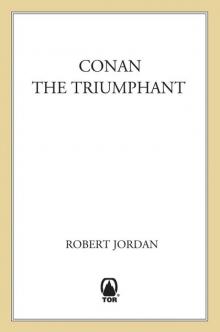 Conan the Triumphant
Conan the Triumphant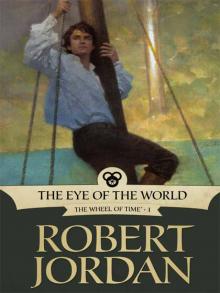 The Eye of the World
The Eye of the World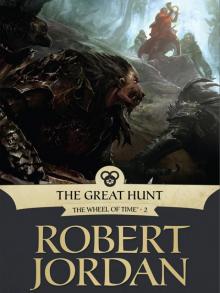 The Great Hunt
The Great Hunt Conan the Victorious
Conan the Victorious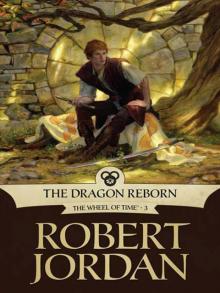 The Dragon Reborn
The Dragon Reborn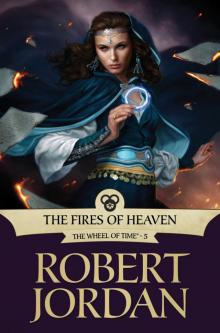 The Fires of Heaven
The Fires of Heaven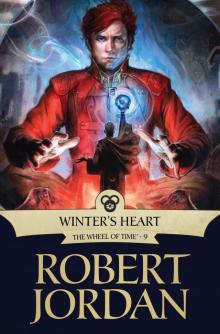 Winter's Heart
Winter's Heart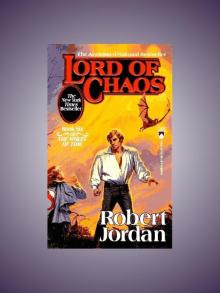 Lord of Chaos
Lord of Chaos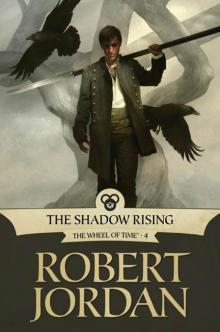 The Shadow Rising
The Shadow Rising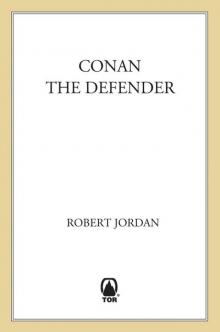 Conan the Defender
Conan the Defender The Strike at Shayol Ghul
The Strike at Shayol Ghul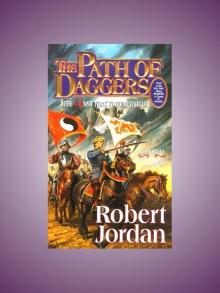 The Path of Daggers
The Path of Daggers A Memory of Light
A Memory of Light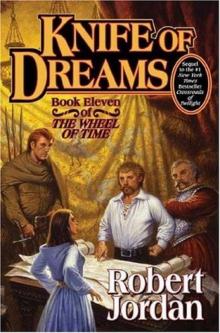 Knife of Dreams
Knife of Dreams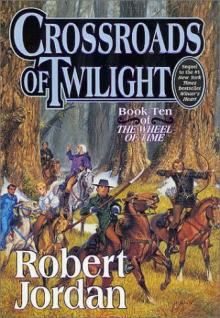 Crossroads of Twilight
Crossroads of Twilight Conan the Invincible
Conan the Invincible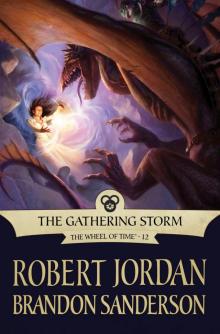 The Gathering Storm
The Gathering Storm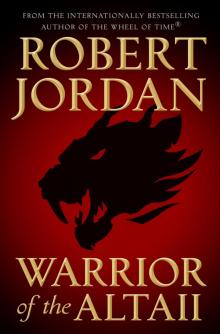 Warrior of the Altaii
Warrior of the Altaii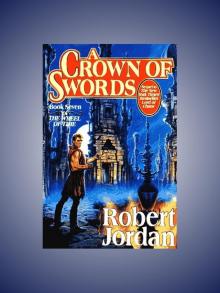 A Crown of Swords
A Crown of Swords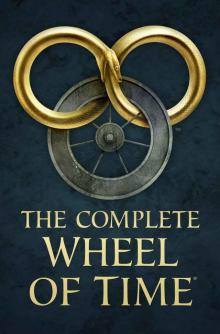 The Wheel of Time
The Wheel of Time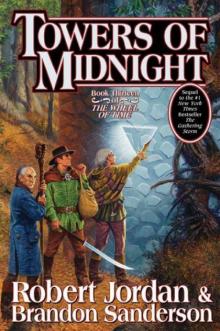 Towers of Midnight
Towers of Midnight Conan Chronicles 2
Conan Chronicles 2 Conan the Magnificent
Conan the Magnificent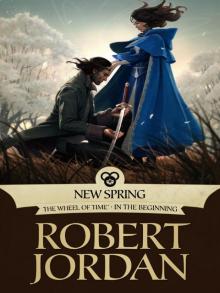 New Spring
New Spring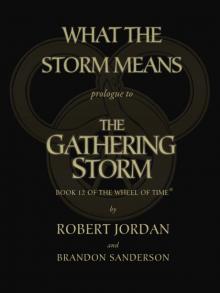 What the Storm Means
What the Storm Means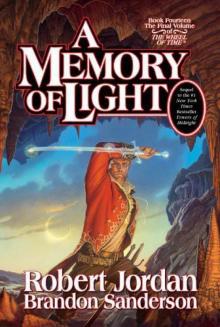 A Memory of Light twot-14
A Memory of Light twot-14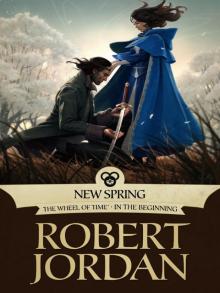 New Spring: The Novel
New Spring: The Novel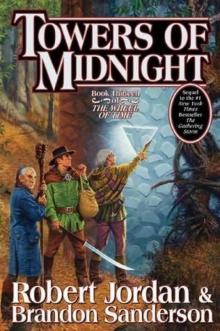 Towers of midnight wot-13
Towers of midnight wot-13 A Memory Of Light: Wheel of Time Book 14
A Memory Of Light: Wheel of Time Book 14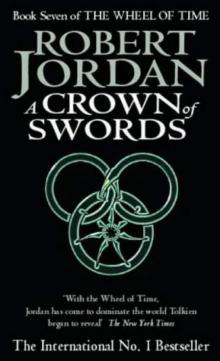 A Crown of Swords twot-7
A Crown of Swords twot-7 Lord of Chaos twot-6
Lord of Chaos twot-6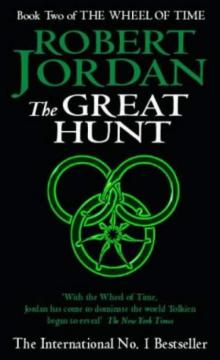 The Great Hunt twot-2
The Great Hunt twot-2 The Shadow Rising twot-4
The Shadow Rising twot-4![Wheel of Time-11] Knife of Dreams Read online](http://i1.bookreadfree.com/i1/04/03/wheel_of_time-11_knife_of_dreams_preview.jpg) Wheel of Time-11] Knife of Dreams
Wheel of Time-11] Knife of Dreams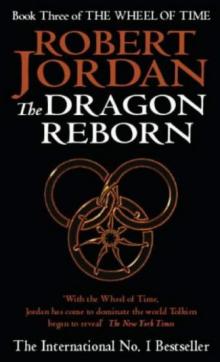 The Dragon Reborn twot-3
The Dragon Reborn twot-3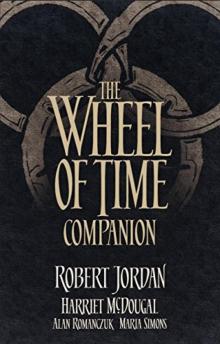 The Wheel of Time Companion
The Wheel of Time Companion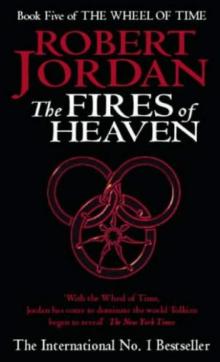 The Fires of Heaven twot-5
The Fires of Heaven twot-5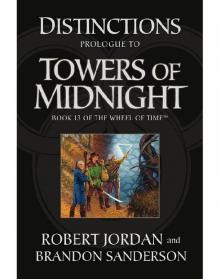 Prologue to Towers of Midnight
Prologue to Towers of Midnight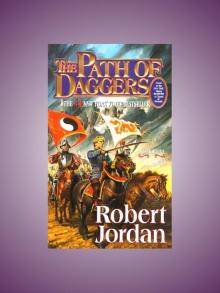 The Path of Daggers - The Wheel of Time Book 8
The Path of Daggers - The Wheel of Time Book 8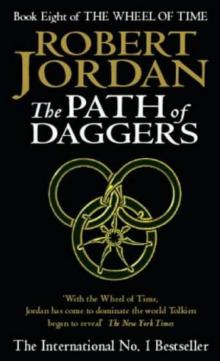 The Path of Daggers twot-8
The Path of Daggers twot-8 By Grace and Banners Fallen: Prologue to a Memory of Light
By Grace and Banners Fallen: Prologue to a Memory of Light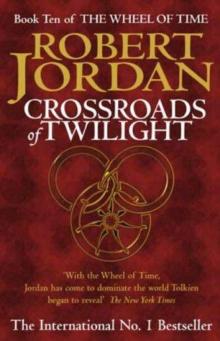 Crossroads of Twilight twot-10
Crossroads of Twilight twot-10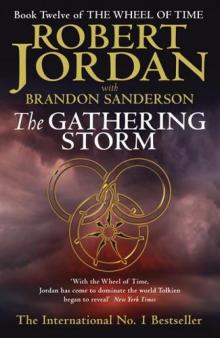 The Gathering Storm twot-12
The Gathering Storm twot-12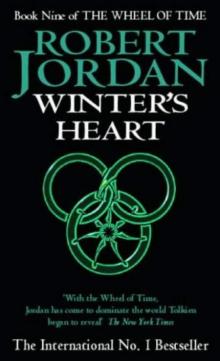 Winter's Heart twot-9
Winter's Heart twot-9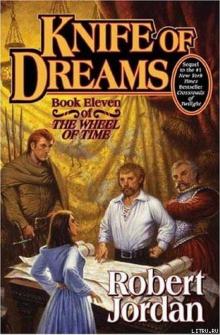 Knife of Dreams twot-11
Knife of Dreams twot-11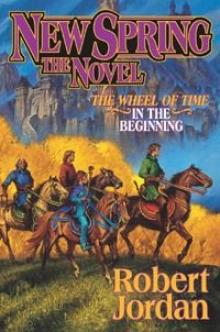 New Spring: The Novel (wheel of time)
New Spring: The Novel (wheel of time)